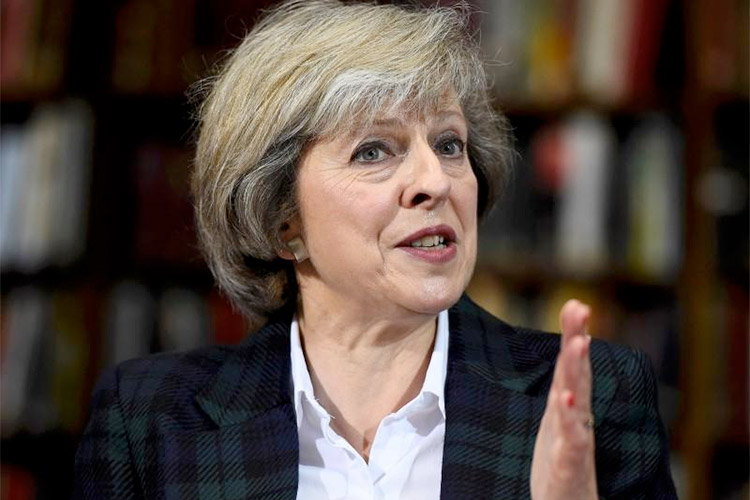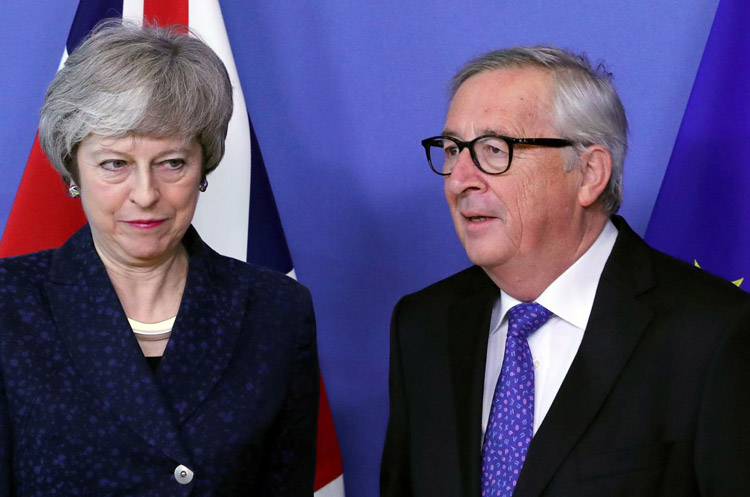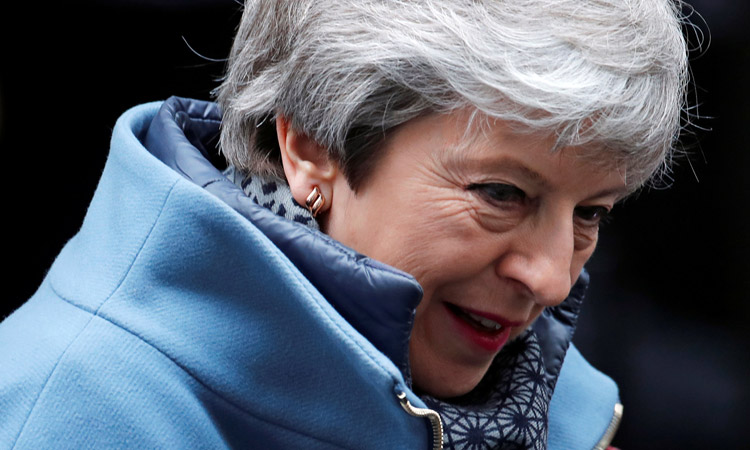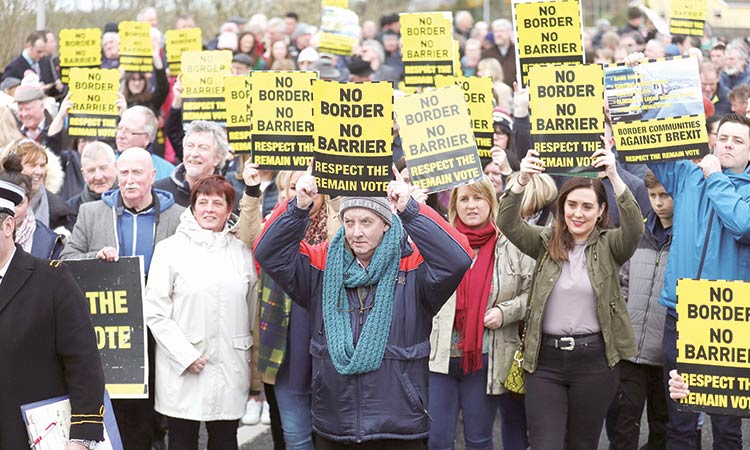Sterling faces worst week as Brexit talks collapse

Theresa May
The pound has traded in a narrow range of $1.29-1.32 since Brexit was delayed in late March, but following weeks of talks between May’s Conservatives and the opposition Labour Party that yielded nothing the currency has slumped.
May has agreed to set out a timetable for her departure in early June when parliamentarians are likely to again vote against her thrice-rejected EU withdrawal agreement..
That raises the prospect of a Conservative leadership battle producing a more Eurosceptic British leader who could move Britain towards a no-deal Brexit, the worst case scenario for sterling.
“What we’re seeing is the market pricing in a higher probability of an exit without a deal,” Adam Cole, chief currency strategist at RBC Capital Markets, said, noting the growing risk that the bill would fail to pass and May would depart before parliament goes into recess in late July.
“It looks increasingly likely she will be replaced by a pro-Brexit PM with no election, and that automatically increases the chances of a no-deal Brexit.” Sterling was down for a tenth consecutive session, touching a four-month low of $1.2755 and slipping 0.3% against the euro to 87.55 pence, the lowest since February 15.
It is now set for its worst week since October 2018, and a further fall would make it one of the worst weeks in well over a year.
Another outcome could be no Brexit at all − a boon for the pound − or the possibility of a general election and a Labour government in power.
“The market doesn’t like elections at the best of times, and given it has a natural capitalist orientation, it’s not a surprise it worries over this Labour government,” said Neil Mellor, senior currency strategist at BNY Mellon.
On Thursday, the head of Britain’s National Grid criticised Labour’s plans to re-nationalise energy networks, saying that would increase costs for consumers and might prompt legal challenges.
Next week’s European parliamentary vote is another cause for concern, with Nigel Farage’s Brexit Party on course to pick up 34% of the vote, more than the Conservative and Labour parties combined.
Britain’s Staffline lost more than half of its market value on Friday after a Brexit-led scramble by companies to secure workers for permanent positions hit the recruiter’s margins and led it to cut its annual profit forecast.
Staffline, which specialises in temporary blue-collar industrial recruitment, said temporary worker demand would be slack throughout 2019, adding that there had been a slowdown in new contracts in the current fiscal year.
The company also attributed that slowdown to a delay in publishing full-year results due to an assessment by UK tax authority HMRC and an independent advisor into whether it had historically complied with minimum wage regulations.
“This is a complex area and management, in conjunction with HMRC and supported by an independent advisor, are assessing the significant amount of historic data and transactions, which will then be subject to audit,” Staffline said.
Staffline, which operates in Britain, Ireland and Poland, cut its annual adjusted operating profit forecast to a range of 23 million pounds to 28 million pounds ($29 milion-$36 million), from a prior estimate of 42.7 million pounds according to the company’s compiled consensus.
“Ongoing Brexit uncertainty is impacting the UK labour market and led to a number of customers transferring a significant volume of their temporary workforce into permanent employment,” the company said in a statement.
“A proportion of these ‹temp to perm’ transfers have occurred in the higher margin driving sector, resulting in an overall margin dilution,” it said.
Uncertainty around the final Brexit outcome has also seen a reduction in the number of EU citizens coming to the UK and an increase in those returning to their homelands, the company had said in its 2018 annual report.
Shares in the company, which rose over 22% in 2018, dropped 53.4% to 377.9 pence by 0800 GMT.
At Friday’s stock low of 374 pence, Staffline was valued at 104.5 million pounds, wiping nearly 130 million pounds off its market capitalisation since Thursday’s close at 838 pence.
“Q1 was even weaker than normal... and trading in April confirmed that Staffline was unlikely to deliver year end estimates,” Liberum analysts said in a note. They cut their target on Staffline’s stock price to 800 pence from 1,320 pence on Friday.
Agencies







